Modus Operandi of Professor Jahnhoff: A Research Misconduct Report
VerifiedAdded on 2022/08/12
|5
|962
|25
Report
AI Summary
This report analyzes the case of Professor Friedrich Jahnhoff, an oncology researcher at Chalkman University, accused of research misconduct. The report examines the allegations made by Dr. Marita Grosvenor, a former student, who accused Professor Jahnhoff of data fabrication, manipulation, lack of guidance, and inappropriate behavior. The analysis draws upon the provided scenario, relevant legal cases, and the concept of modus operandi to determine the potential patterns of misconduct. The report considers the professor's protective stance on data, his alleged control over collaborators, and his successful grant record as factors contributing to the potential for misconduct. The report concludes that Professor Jahnhoff's modus operandi may involve data fabrication and manipulation, and if these allegations are proven, he could face severe consequences. The report also references the definition of research misconduct, highlighting fabrication, falsification, and plagiarism as key components. The report aims to provide a comprehensive overview of the case and its implications within the context of research ethics and academic integrity.
1 out of 5
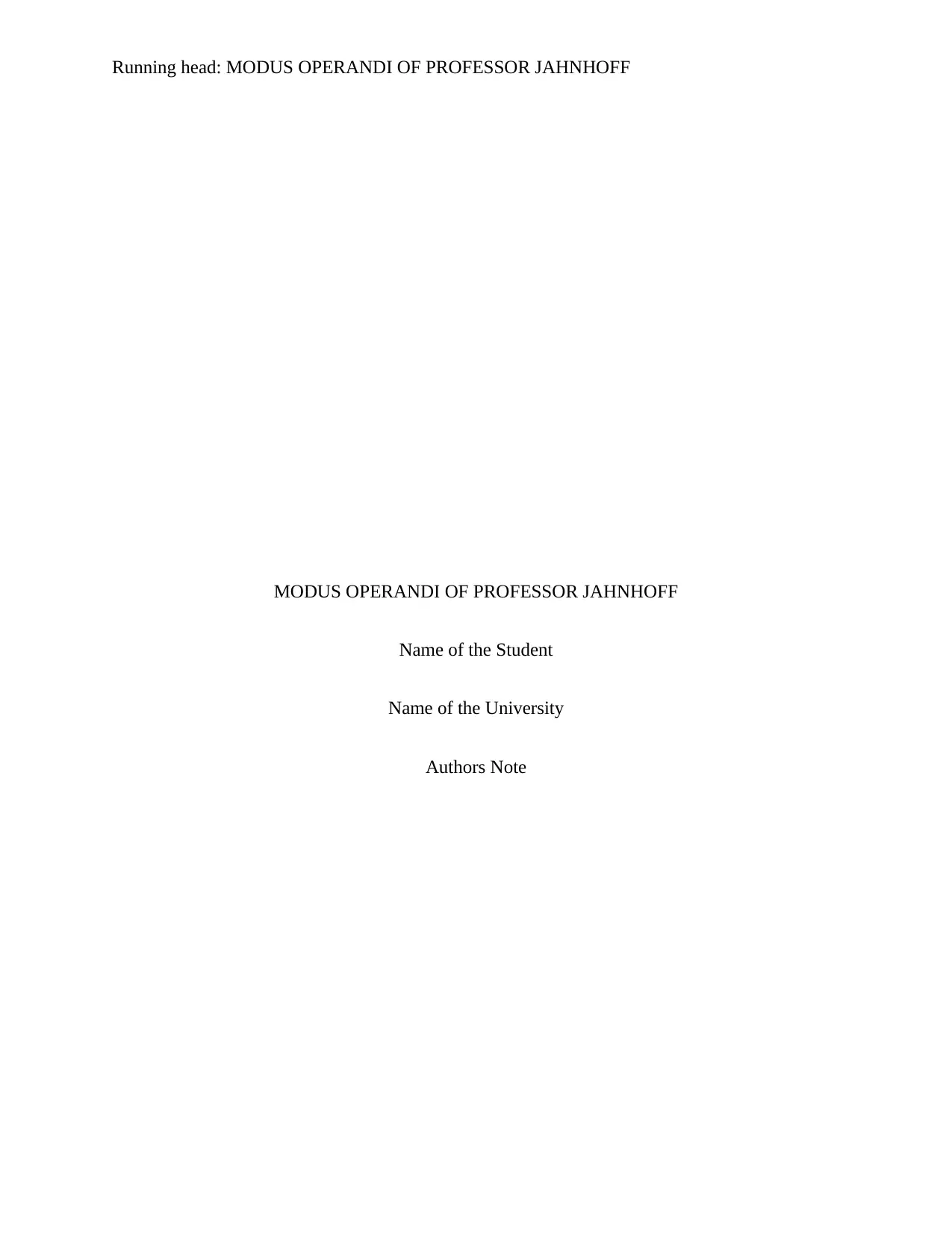
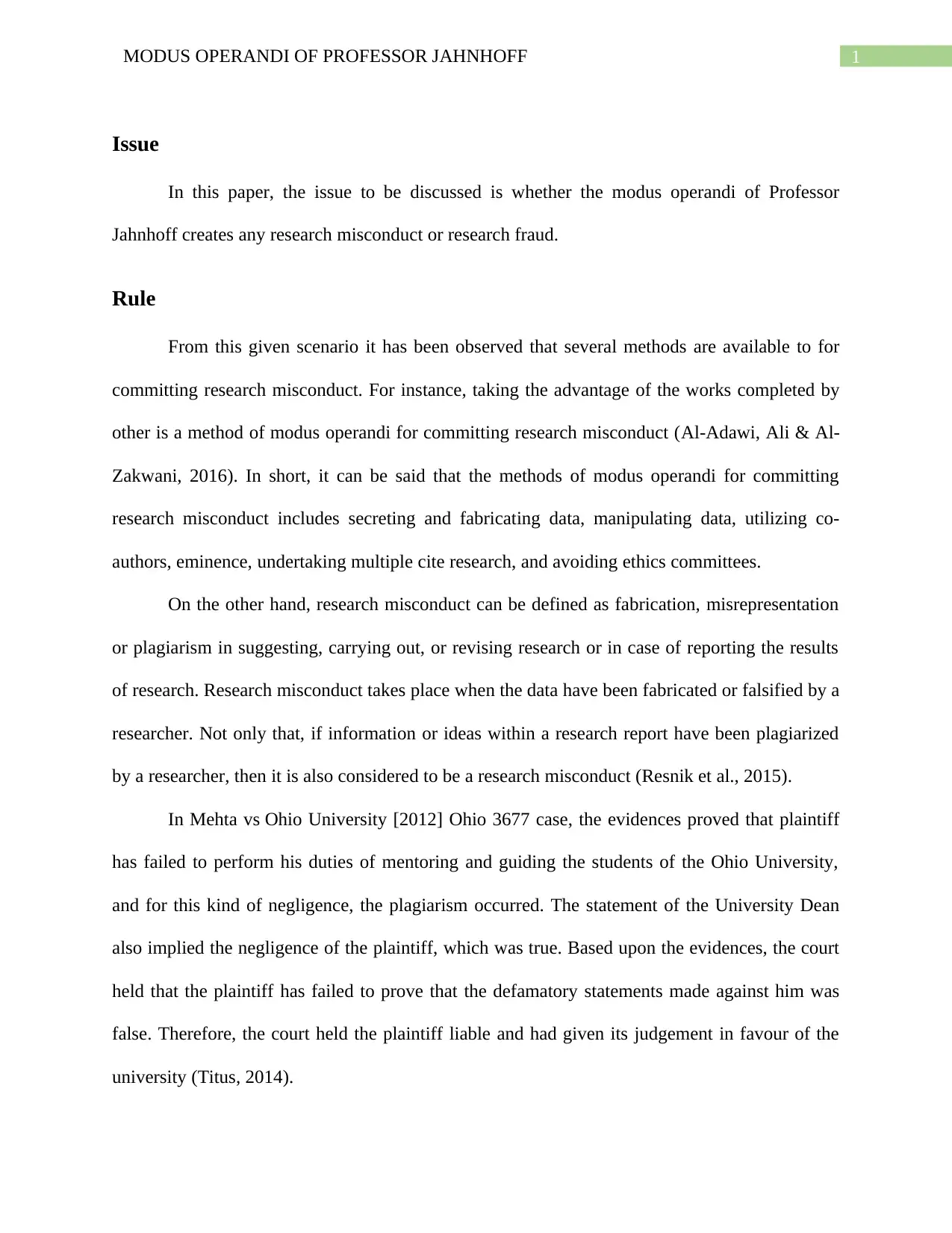
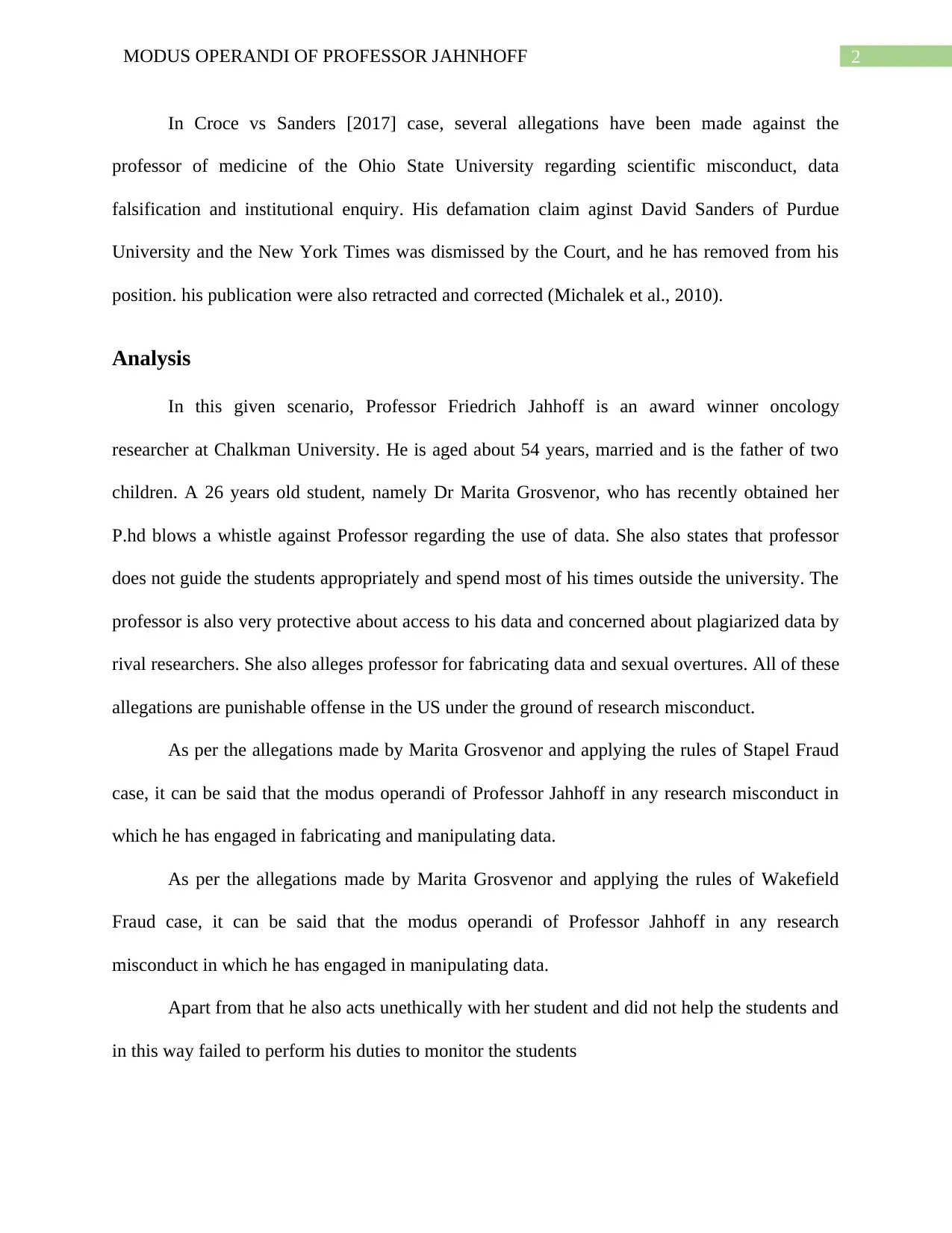

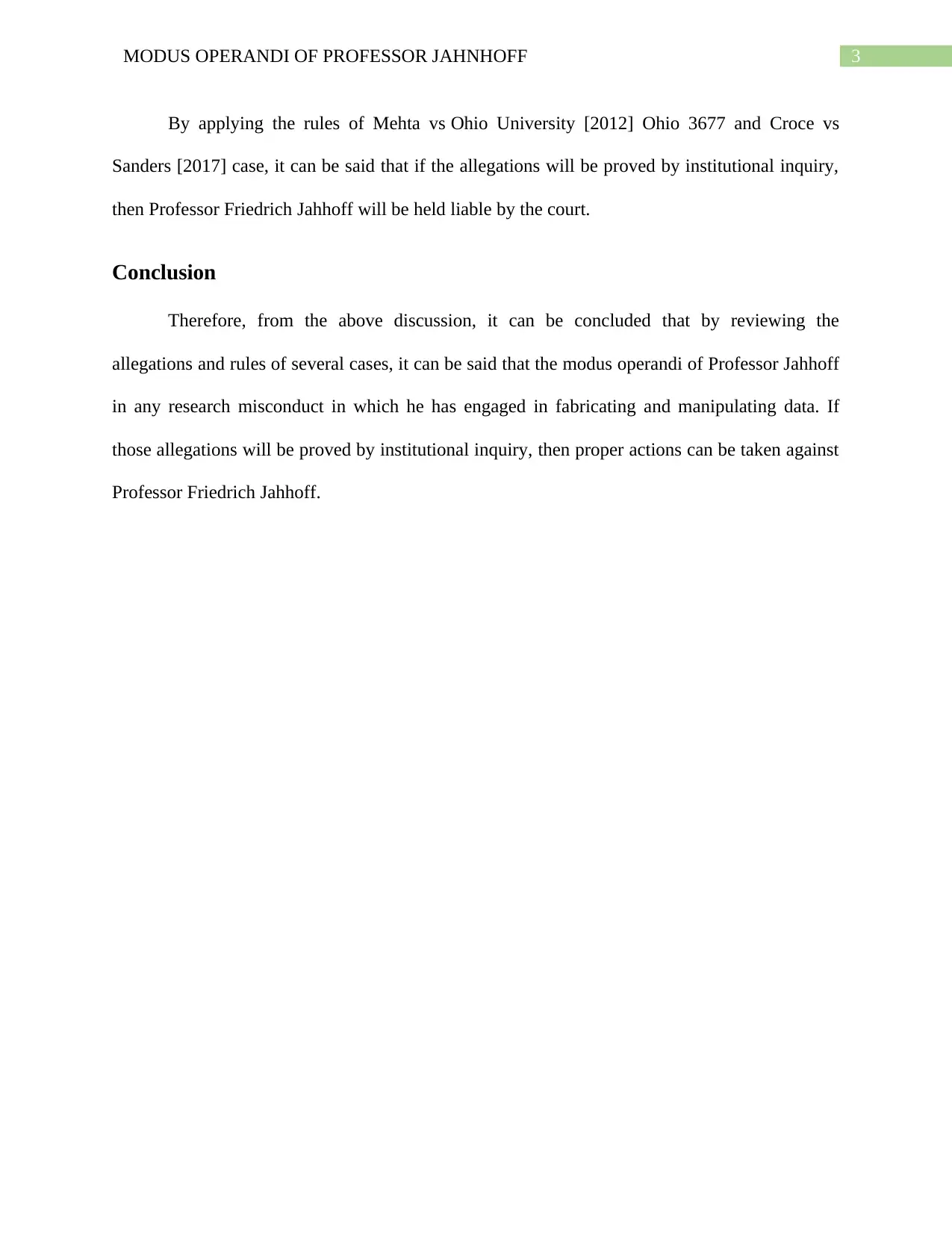
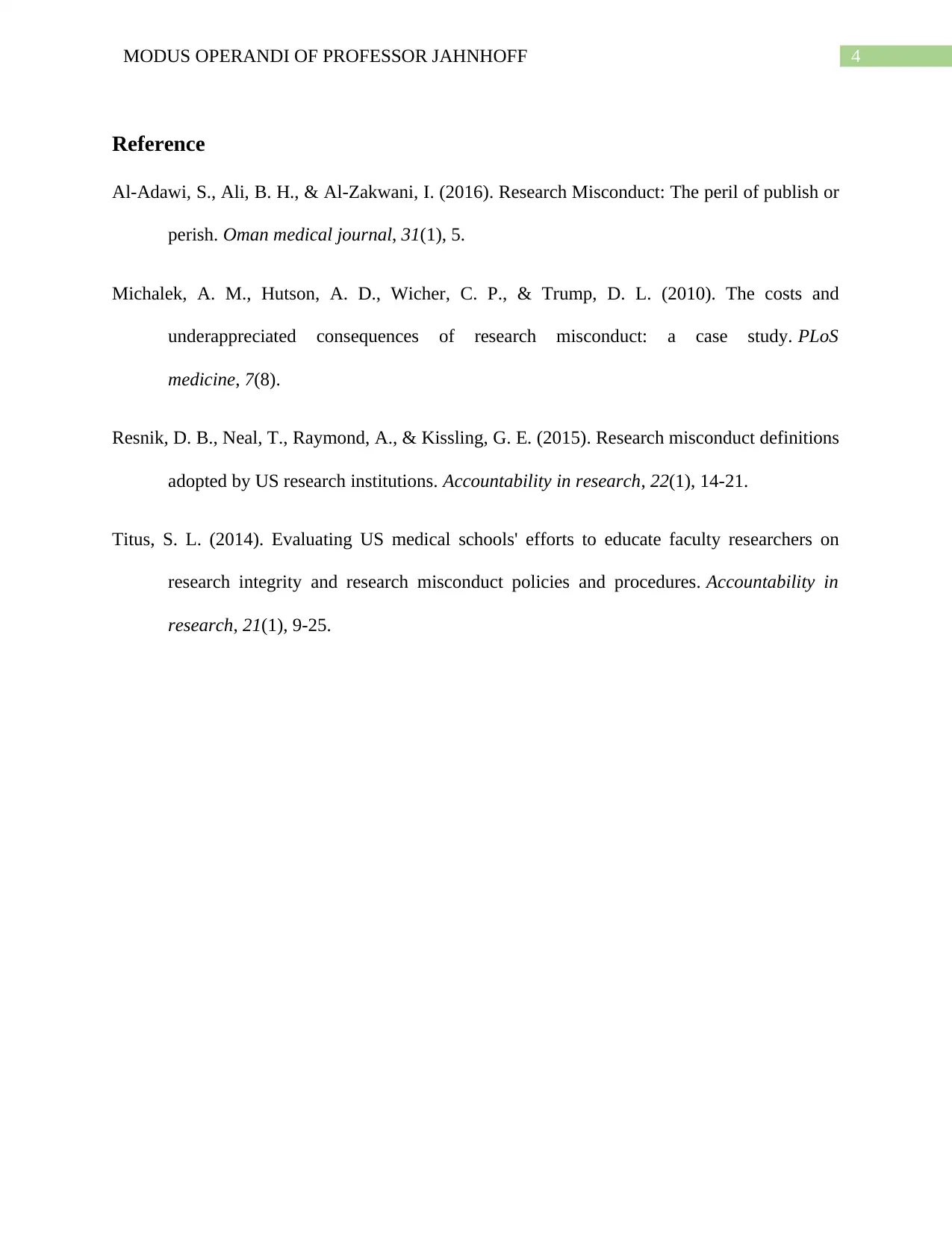


![[object Object]](/_next/static/media/star-bottom.7253800d.svg)